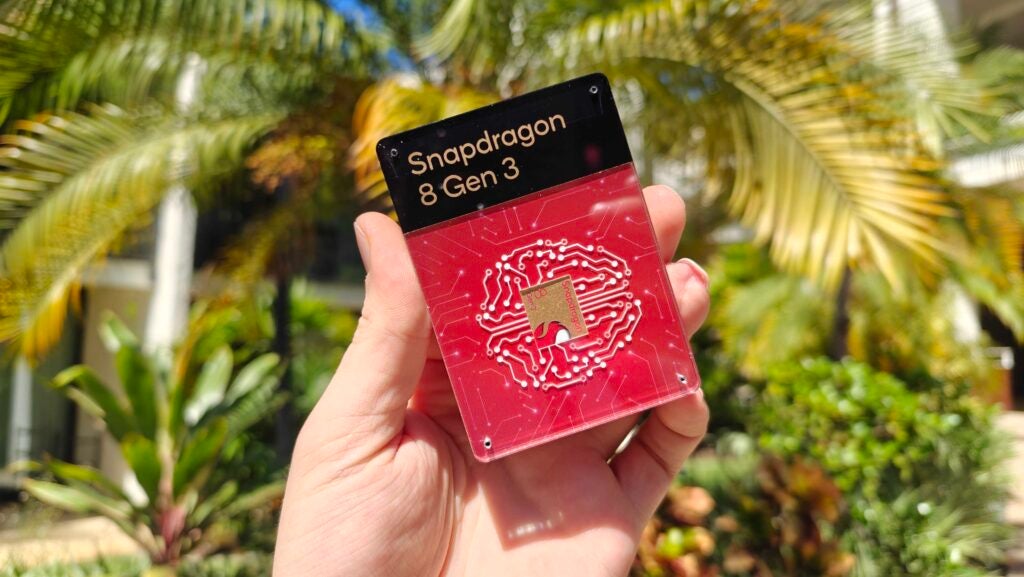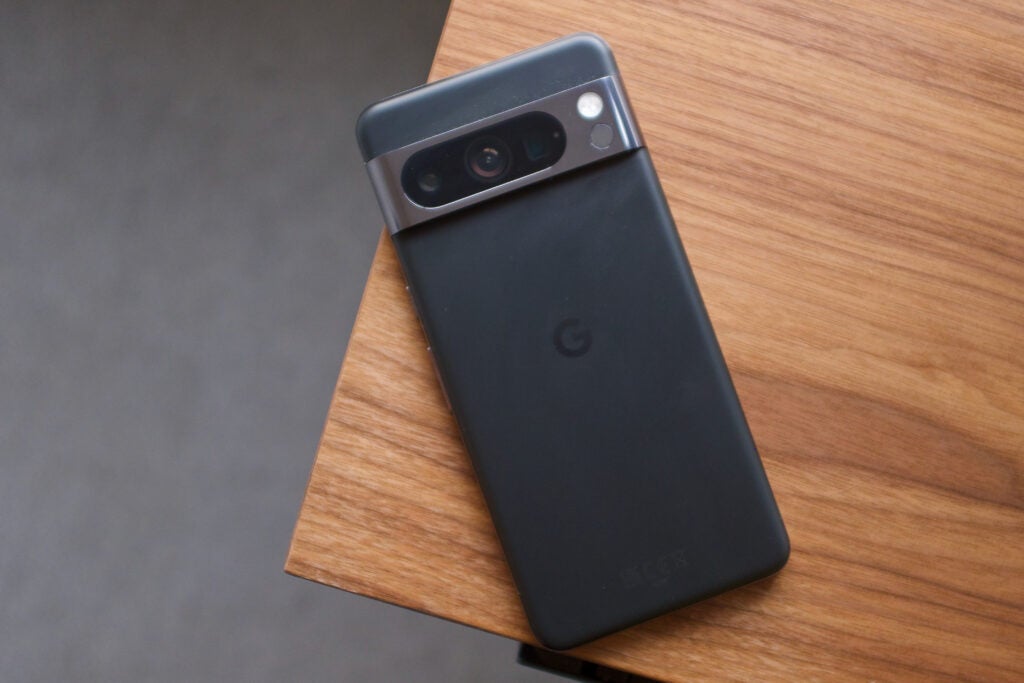OPINION: Qualcomm has revealed the next-gen chipset set to be used in plenty of flagship phones in 2024, the Snapdragon 8 Gen 3. However, unlike previous iterations of flagship smartphone chips that offer simple year-on-year gains in the CPU and GPU department, this year’s chipset is a different beast entirely – and Google should be worried.
That’s because the Snapdragon 8 Gen 3 isn’t purely focused on performance; it has a huge focus on AI, and Generative AI – think ChatGPT, Generative Fill in the Photoshop Beta and those scarily accurate AI-generated 90s headshots doing the rounds on TikTok – in particular.
More specifically, the AI Engine within the 8 Gen 3 boasts support for Generative AI models with up to 10 billion parameters, all on-device without the need for an internet connection. That means that you’ll be able to use AI to perform tasks like generating emails or an itinerary for an upcoming trip without the AI needing to connect to the cloud.
It goes far beyond just getting an AI to write you a social media post though; the real focus is on camera technology. Qualcomm has this week showcased a number of firsts for Snapdragon devices, including Image Eraser tech that removes unwanted subjects from photos, along with a real-time ultra-low light photo and video mode, and intelligent in-sensor zoom that’ll automatically pan and follow fast-moving subjects.
There are also cool editing features like Photo Expansion, very similar to what we’ve seen on the Photoshop Beta this year that essentially uses AI to fill in the gaps around the edge of a photo, along with Stable Diffusion – a fancy way of saying AI image generation.

In fact, there’s a particular Fast Stable Diffusion demo that I saw earlier this week that showed the chipset generating entirely new images in under a second, all while in Airplane mode. That’s the fastest in the world, both on-device and when using cloud servers.
That means that, depending on the features that manufacturers want to implement from Qualcomm’s wide-ranging AI toolset, phones equipped with the next-gen Snapdragon chipset will be able to do some entirely new things not seen on any other smartphone. Aside from Google’s Pixel range, that is.
Since the release of the Google Pixel 6 with Google’s in-house Tensor chipset, the company has gone all-in on AI, particularly when it comes to photo and video capture and editing, so much so that general performance isn’t entirely up to scratch with the rest of the flagship smartphone competition.
However, features like Night Sight, Super Res Zoom, Magic Eraser and newer additions like Audio Magic Eraser and Best Take usually make up for the slight dent in CPU and GPU performance because they were unique features to the Pixel lineup that allowed them to deliver some of the best photos and videos captured on a smartphone. There’s a reason why the Pixel range is generally heralded as the best camera phone on Android.

But with Qualcomm’s Snapdragon 8 Gen 3 bringing many of these features to other Android smartphones in 2024, along with a boost in performance – 30% to CPU, 25% to GPU and 98% to NPU – means that not only are the Pixel phones no longer unique in the Android market, but they’re now also relatively underpowered.
While I haven’t had the chance to benchmark the 8 Gen 3 just yet, this year’s 8 Gen 2-equipped flagship smartphones comfortably beat the Tensor G3 of the Google Pixel 8 Pro in most benchmark tests, so I’m only expecting the gap to widen further.
So, while Google still has a few months of domination left with its Pixel 8 range, once 2024 rolls around and Snapdragon 8 Gen 3-equipped devices begin to appear in the Western market, Google could have a real problem on its hands.




